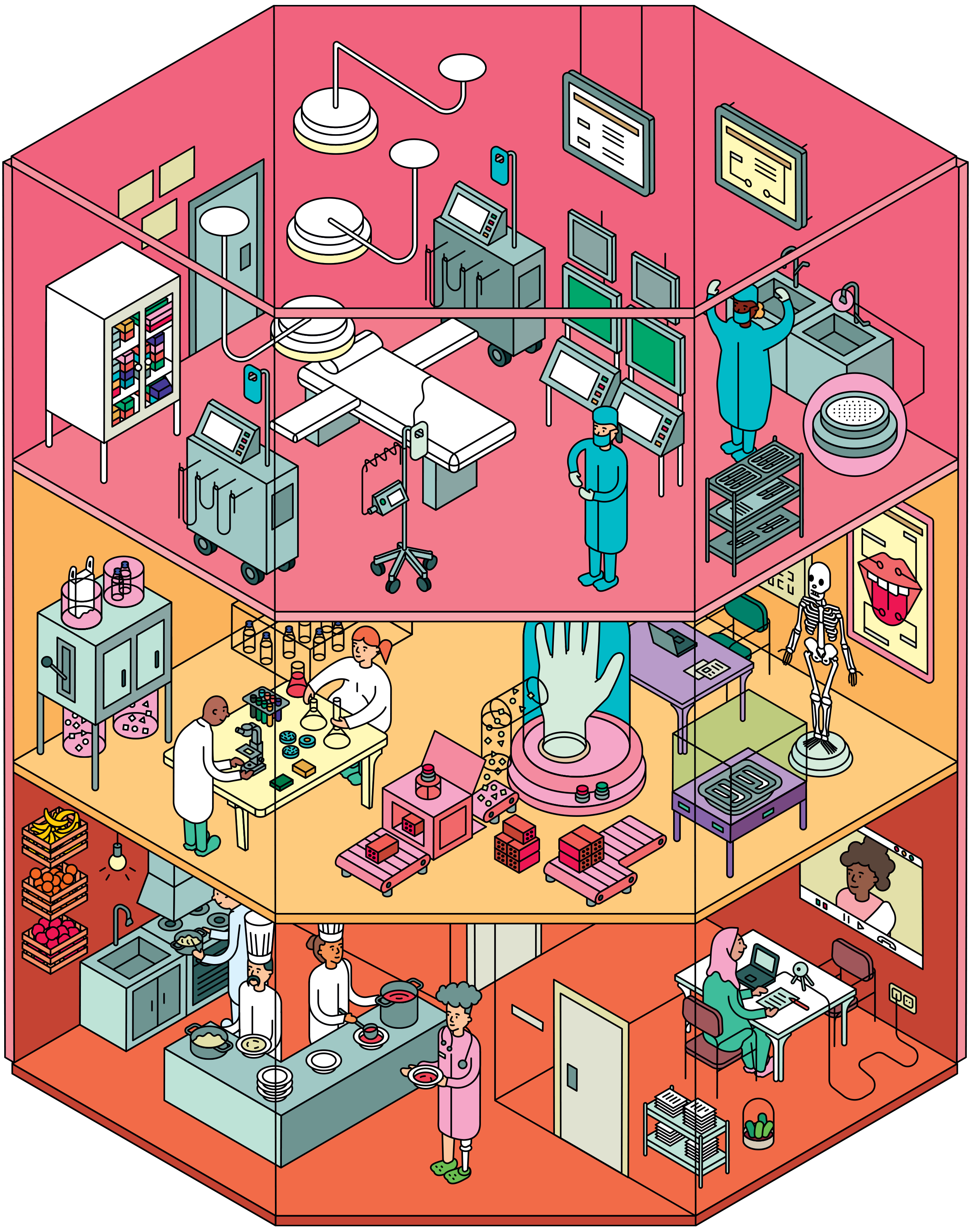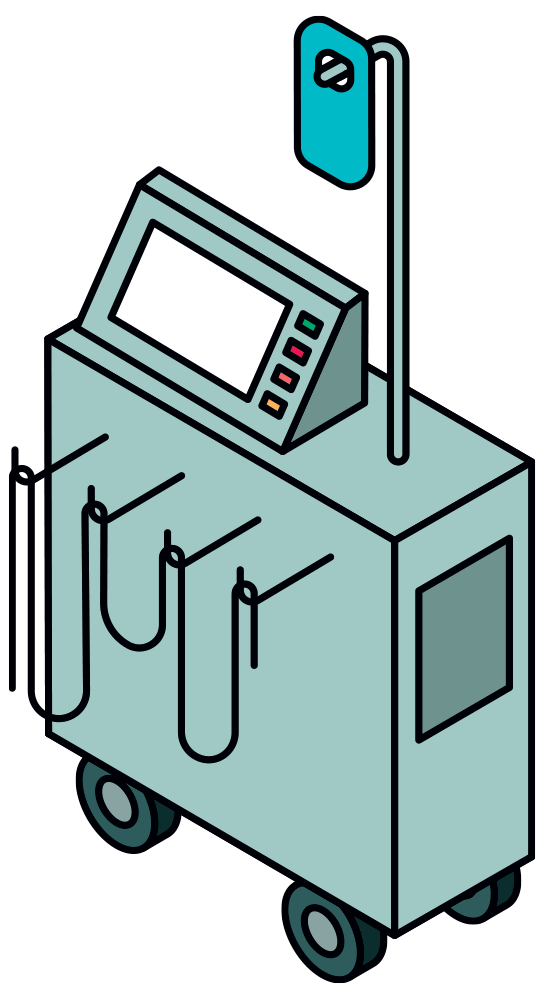
Laboratory
Greening the OR
Last year, Keck Hospital of USC and USC Norris Cancer Hospital continued efforts to reduce the use of environmentally harmful anesthesia gases in surgery by eliminating nitrous oxide and desflurane. USC is also planning on cutting the use of anesthetics sevoflurane and isoflurane and optimizing gas delivery to reduce waste; this reduction in greenhouse gas emissions represents the equivalent of driving around Earth’s circumference more than six times.
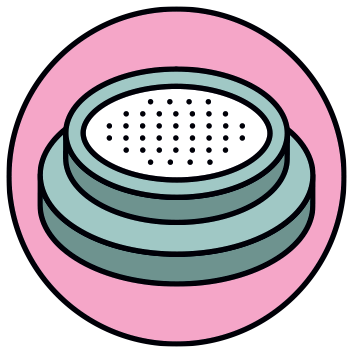
Laboratory
Water Wise
Keck Medical Center of USC saved more than 1.7 million gallons of water in a single year (2023) by installing 232 laminar flow devices throughout the medical center. These devices are advanced water-flow restrictors that produce a clear, efficient stream of water. In April, the 2024 Los Angeles Department of Water and Power Awards recognized Keck Medical Center’s successful large-scale sustainability initiative.
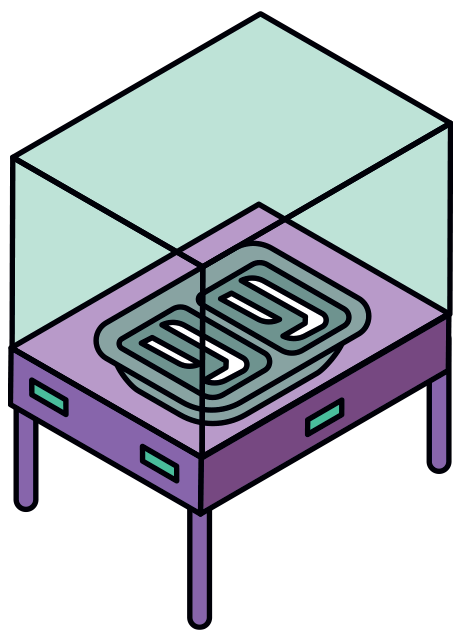
Research
Waste no More
USC is working on customizing medical supply kits, reducing unused items and offering reusable supplies such as handles for laryngoscopes, a tool used to check a patient’s airway.
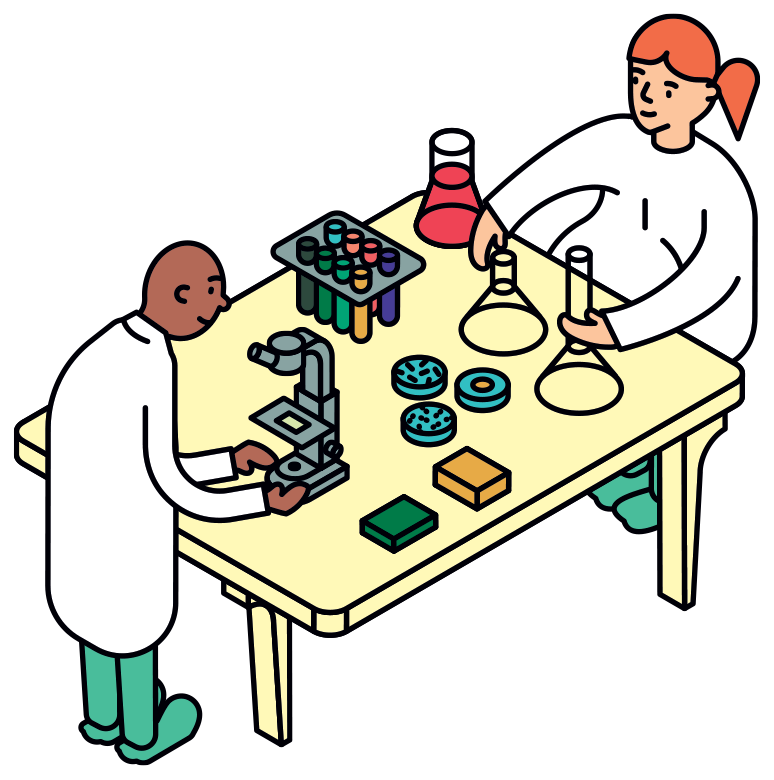
Research
Research Minimizing Risk
Environmental health researcher Max Aung and fellow researcher Lida Chatzi are working on assessing community exposures to PFAS (short for perfluoroalkyl and polyfluoroalkyl substances) via drinking water in Southern California. These chemicals pose a great risk to human health, and studying where they come from will better inform equitable solutions to protect these communities, Aung says.
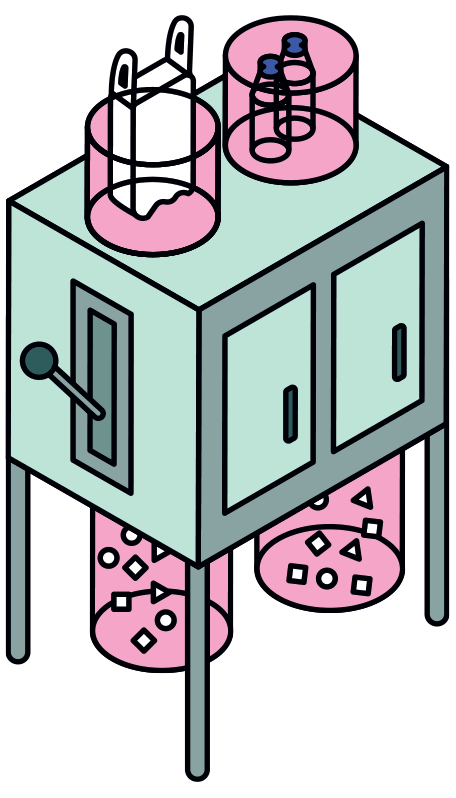
Research
Pharmaceutical Plastic
Clay C.C. Wang of the USC Alfred E. Mann School of Pharmacy and Pharmaceutical Sciences is upcycling plastic bags and bottles plucked from the ocean by composting them with a special fungus to create molecules that can be used for the synthesis of pharmaceutical drugs.
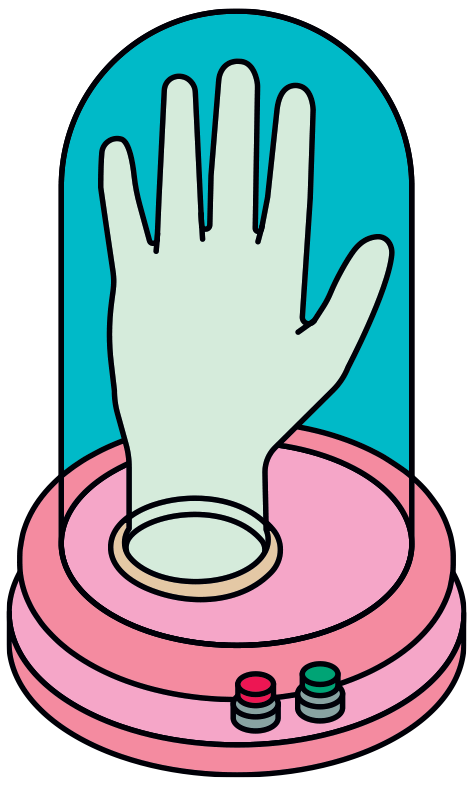
Research
From Hand to Foot
Sarah Hamm-Alvarez, a professor at the Keck School of Medicine of USC and at USC Mann, conducted research on recycling used nitrile gloves into flooring materials. It’s part of a USC effort to divert medical gloves from landfills.

Organization
Low-Hanging Fruit
Inexpensive and small changes — such as retrofitting lighting to use LEDs — have made a tremendous impact at Keck Medical Center.
In transportation: EV chargers were installed at Keck Medical Center, and plans to make fleet vehicles electric are underway.
In food services: Sustainable products, such as organic and locally grown produce, are now part of the system serving patients and staff, and the main kitchen is composting all food waste. The removal of single-use plastic bottles and utensils has also significantly reduced waste.
In patient care: Keck Medical Center has joined a health care sustainability collaborative to increase the implementation of reusable clinical items, such as isolation gowns, so they can be safely used again.

Organization
Telehealth Footprint
Howard Hu, professor of preventive medicine at the Keck School of Medicine, notes that “the 65-fold increase in telehealth [which started during the pandemic] has actually improved access and some aspects of primary care and mental health services while forgoing the carbon emissions associated with transporting patients to medical centers.”

